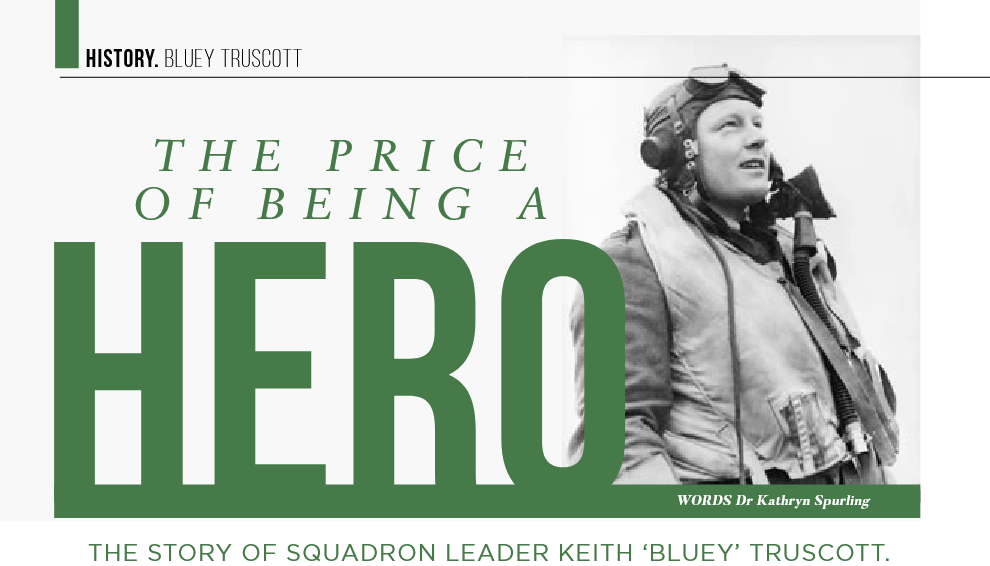Kathryn Spurling in the Media

He survived the Luftwaffe, crashed bombers… and carried the scars no one ever saw.
The untold truth of an Australian airman finally revealed by his daughter.
Most soldiers never told the real story. I went looking, and what I found will break your heart and make you proud in the same breath.
I grew up knowing my father had served in World War II, but like so many men of his generation, he kept the truth locked away behind silence, anger, and a lifetime of unfinished sentences. He never sat me down and said, “This is what happened.” He carried it alone… the crash landings, the terror, the trauma, the moments when he shouldn’t have survived but somehow did.
ABC News
War widows encourage younger women to reach out for support in times of grief. The ACT War Widows group has been helping defence wives in Canberra for more than 50 years.
Article in Take 5 Magazine
I wanted to know what my father experienced in WWII
Dr Kathryn Spurling, 76, Canberra, ACT.
My young sons, Ashley and Bryden, listened intently to their grandfather, Maxwell Norris, as he regaled them with stories of the war.
With his hands in position, he demonstrated how he’d shot down a fleet of Luftwaffe, Germany’s air defence, from a Halifax bomber.
Hidden
Click Here to read the Full Article.
I wanted to know what my father experienced in WWII
Dr Kathryn Spurling, 76, Canberra, ACT.
My young sons, Ashley and Bryden, listened intently to their grandfather, Maxwell Norris, as he regaled them with stories of the war.
With his hands in position, he demonstrated how he’d shot down a fleet of Luftwaffe, Germany’s air defence, from a Halifax bomber.
Yeah, right Dad, I thought, smiling.
He had a habit of embellishing some stories.
But my father had served with the bomber command of the Royal Air Force and flown many operations over Germany during WWII.
“As I had a PhD in military history, I was well aware he’d never personally shot down any aircraft.
When I was little, Dad rarely spoke to me about his service.
He was angry and often hid away in his garage, unable to reach out emotionally.
As I matured I recognised he was suffering PTSD from his two years under RAF command.
“Once your father returned, he took back his job at the Commonwealth Bank,” my mum, Hilda, told me one day.
He’d put his life on the line for his country and now nobody would stop to hear his story.
He also struggled with employment after that.
Following the adrenaline rush of flying bombers, desk jobs were too mundane.
He also suffered multiple injuries sustained during his service.
His plane had crash-landed on return to England, leaving him with lifelong back pain.
Years later, he developed a cancerous kidney which he believed came from the hundreds of hours spent in aircraft.
“Our entire operations to Berlin were eight hours,” he said.
“We had no way to relieve ourselves so we were exposed to radiation constantly.”
When Dad passed in 2010, aged 89, I considered how he’d protected his wellbeing his entire life and vowed to find out more about it.
I arranged interviews with a number of WWII Australian Air Force servicemen.
One veteran I met was Bert Stobart, 89, in Melbourne. He’d joined the RAAF, hoping to become a pilot but was instead put into training to become a gunner.
“The crew I’d initially trained to be a part of were all killed on their first mission,” he said.
Hearing his terrifying conditions, long hours, cramped spaces, I thought about the hardships my Dad had endured and understood why he was so angry.
“You might be interested in my book,” Bert continued.
“It’s called My Trip Abroad.”
He grabbed a large scrapbook filled with photos from his time at war.
“This is what happened in September 1943 when we were attacked,” he said.
Bert’s crew had just crossed the Dutch coast when they were shot from below by an ME-110 night fighter.
“The starboard engines burst into flames and we began rapidly descending.”
He managed to climb into the escape hatch and, with his parachute, kicked out the panel and fell through the night sky.
“As I flipped in the air, the wind tugging at me, the ground fast and dark beneath me, I was terrified.”
When he came to, he was surrounded by German soldiers who asked him for cigarettes.
Bert was taken to the prisoner of war camp, Stalag IV-B.
“It looked like a dirty big cage,” he recalled.
Bert was in the cage for the next two years and the memories stayed with him until he died aged 89.
It contained depictions of home-made radios the soldiers constructed, jokes from the men’s theatre, often with bones from dinner used as props, and drawings or paintings with broken crayons smuggled in with potato sacks.
“I asked fellow POWs to write or draw something in my book,” he explained.
As I flipped the pages, I gasped seeing humorous cartoons with bold faces and writing. I knew I was looking at history.
As I went home, Bert’s words pointed to what I’d been searching for.
The horrors of war were hanging in the silence between the prisoners.
She was my fiancée at the time and we married as soon as I returned home after the war.
His entire work consisted of charcoal and he drew the pencil-sketched beautiful work.
“Bert was a keen caricaturist,” I said.
I published the experiences of the RAAF servicemen in my book, A Grave Too Far Away.
“You will always
be loved,”
Bert’s story showed me how much his wife meant to him.
He passed in September 2020, aged 96, and his ashes were laid to rest next to his beloved wife, Noel, who died aged 88.
Noel had passed some years earlier but he refused to marry again.
“Once you find your true love, you don’t need another,” he said.
During COVID lockdowns, his daughter scanned thousands of memorabilia and I recorded 10,822 words.
Using only Bert’s scrapbook, I found an incredible memoir of this brave man.
Bert showed the resilience of many soldiers during the war.
Hopefully sharing these stories will help others understand how courageous and brave the quiet ones are.
Kathryn Spurling defends her opinion on wether there should be a Royal Commission into incidents of abuse in the Australian Defence Force.
ABC Drum – 2011
Vice Admiral Peter Jones and his expert panel on the formation of the Women’s Royal Australian Naval Service (WRANS) during World War II. The panel consists of Dr Christine Reghenzni, Dr Kathryn Spurling and Commander Alison Westwood.
UNSW Podast Series – 2011


